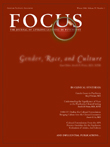The tables in this section are reprinted with permission from Dubovsky SL, Dubovsky AN: Concise Guide to Mood Disorders, Washington, DC, American Psychiatric Press, 2002.
Table 1. Characteristics of Effective Psychotherapy for Depression| Time-limited treatment |
| Explicit rationale for treatment, shared by patient and therapist |
| Active and directive therapist |
| Focus on current problems |
| Emphasis on changing current behavior |
| Self-monitoring of progress |
| Involvement of significant others |
| Expression of cautious optimism |
| Problems divided into manageable units with short-term goals |
| Homework assignments |
Table 1. Characteristics of Effective Psychotherapy for DepressionEnlarge table Table 2. Questions for Evaluating Inadequate Antidepressant Response| Are the dose and duration of treatment adequate? |
| Is the patient taking the medication? |
| Is a medical illness contributing to treatment resistance? |
| Is the patient taking a medication or substance that is interfering with the antidepressant? |
| Is the patient truly depressed? |
| Are psychotic symptoms present? |
| Is the depression bipolar? |
| Are psychosocial issues being ignored? |
| Has the patient’s family been involved in treatment? |
Table 2. Questions for Evaluating Inadequate Antidepressant ResponseEnlarge table Table 3. Agents Used to Augment Antidepressant Therapy in Unipolar Depression| Lithium |
| Stimulants |
| Carbamazepine |
| Buspirone |
| Triiodothyronine (T3) |
| Gabapentin |
| Atypical antipsychotic drugs |
| SSRI–tricyclic antidepressant combination |
| Mirtazapine-venlafaxine combination |
| MAOI–tricyclic antidepressant combination |
Table 3. Agents Used to Augment Antidepressant Therapy in Unipolar DepressionEnlarge table 


